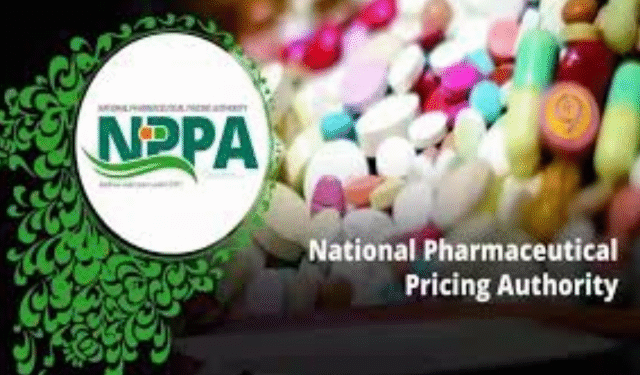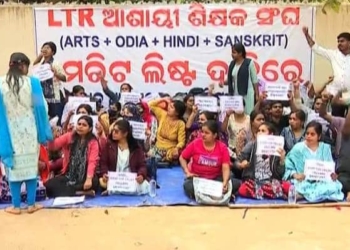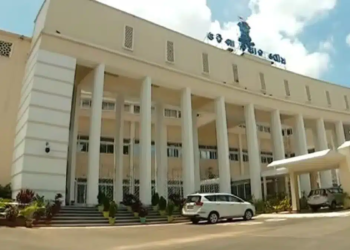The National Pharmaceutical Pricing Authority (NPPA) under the Department of Pharmaceuticals fixes ceiling prices under the provisions of the Drugs (Prices Control) Order, 2013 (DPCO, 2013) in respect of the drugs specified in Schedule-I to DPCO, 2013. Manufacturers of scheduled medicines (both branded and generic) are required to sell their products within the ceiling price (plus applicable Goods and Service Tax) fixed by NPPA. In addition, NPPA fixes the retail price of new drugs as defined in DPCO, 2013. The retail price of a new drug is applicable to the applicant manufacturer and marketer, who are required to sell the new drug within the price notified by NPPA. In the case of non-scheduled formulations, a manufacturer is at liberty to fix the maximum retail price (MRP) of drugs launched by it. However, as per DPCO, 2013, a manufacturer is required to not increase the MRP of a non-scheduled drug by more than 10% of MRP during the preceding 12 months. In addition to the above, the ceiling price of a drug may also be fixed under certain circumstances, in the public interest.
The aforesaid Schedule to DPCO, 2013 consists of the National List of Essential Medicines (NLEM), 2022 notified by the Department of Health and Family Welfare. NLEM, 2022 includes 63 anti-cancer drugs, including immunosuppressives and medicines used in palliative care.
Various measures have been taken to make cancer drugs affordable and accessible to the masses, including, among others, the following:
- NPPA has fixed ceiling prices of 131 scheduled anti-cancer formulations under NLEM. These include 111 formulations whose prices were fixed under the NLEM, 2015. Refixation of the same under NLEM, 2022 has resulted in a reduction of around 21% from the ceiling prices fixed under NLEM, 2015, leading to annual savings of around ₹294.34 crore to patients.
- NPPA has fixed retail prices of 28 anti-cancer formulations of applicant manufacturing and marketing companies, under the DPCO, 2013 provisions relating to fixing retail prices of new drugs.
- In addition, NPPA has put a cap of 30% trade margin on 42 non-scheduled anti-cancer medicines, in the public interest, which has resulted in a reduction of MRP of 526 brands of these medicines by an average of around 50% and annual savings of around ₹984 crores to patients.
- The government reduced customs duty to nil and GST rates from 12% to 5% for three anti-cancer drugs in the financial year (FY) 2024-25 and NPPA has issued directions to companies to reduce MRP to pass on the tax benefit to consumers.
- Exemption/concessions in customs duty on identified anti-cancer medicines have also been announced in the budget for FY 2025-26.
With the objective of promoting domestic manufacturing of drugs, the Department of Pharmaceuticals is implementing the Production Linked Incentive (PLI) Scheme for Pharmaceuticals with a total financial outlay of ₹15,000 crore with scheme tenure till the financial year 2027-28. 54 anti-cancer drugs are being manufactured under this scheme.
Under Ayushman Bharat Pradhan Mantri Jan Arogya Yojana (AB-PMJAY), health assurance/insurance cover of ₹5 lakh per family per year for secondary or tertiary care hospitalisation to about 60 crore beneficiaries is being provided. The treatment packages under AB-PMJAY are comprehensive and cover various treatment-related aspects, including drugs and diagnostic services. Further, under Pradhan Mantri Bhartiya Janaushadhi Pariyojana, quality medicines are offered through Jan Aushadhi Kendras at rates that are typically 50% to 80% lower than the prices of branded medicines available in the market. In addition, under the Affordable Medicines and Reliable Implants for Treatment (AMRIT) initiative of the Department of Health and Family Welfare, medicines for the treatment of cancer, cardiovascular and other diseases, implants, surgical disposables and other consumables etc. are provided at significant discounts of up to 50% of market rates through AMRIT Pharmacy stores set up in some hospitals/institutions. Moreover, financial assistance is provided to poor patients belonging to families living belowthe poverty line, who suffer from major life-threatening diseases including cancer, under the umbrella scheme of Rashtriya Arogya Nidhi and the Health Minister’s Discretionary Grant (HMDG). Financial assistance of up to ₹15 lakh is provided under the Health Minister’s Cancer Patient Fund under the umbrella scheme of RAN, and assistance of up to ₹1.25 lakh is provided under HMDG to defray part of the treatment cost.
This information was given by the Union Minister of State for Chemicals and Fertilizers Smt Anupriya Patel in Lok Sabha in written reply to a question today.





























